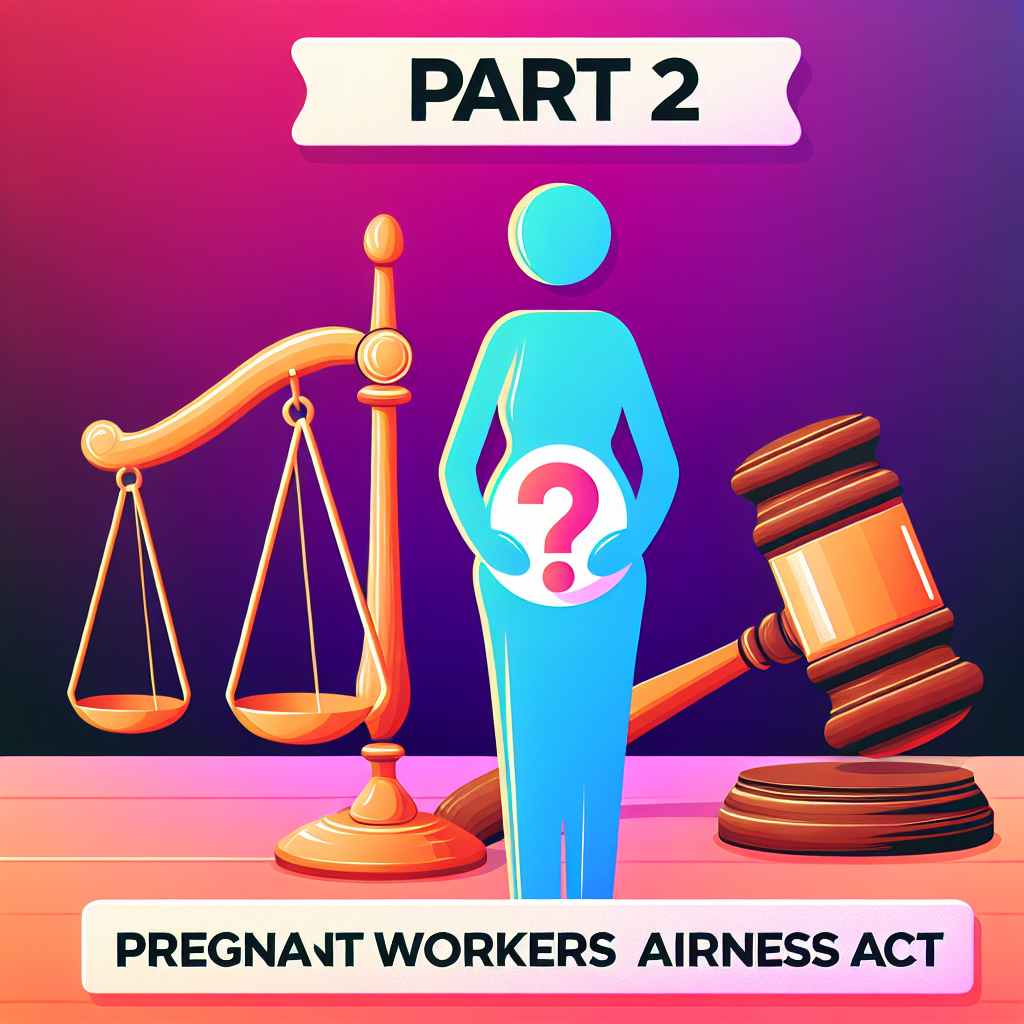Understanding the Pregnant Workers Fairness Act: A Legal Insight with Heart
In a rapidly evolving work environment, the welfare of pregnant workers has become not only a legal concern but also a moral one. In the latest installment of Michael Schmidt’s insightful two-part series on the federal Pregnant Workers Fairness Act (PWFA), legal expert Debbie Friedman joins him to shed light on how employers can navigate this important legislation.
The PWFA aims to ensure that pregnant employees receive reasonable accommodations at work, fostering a more supportive and equitable workplace. As Schmidt and Friedman highlight, the act addresses common situations where pregnant workers may require modifications to their duties or schedules, emphasizing that understanding and compassion are crucial for both adherence to the law and the well-being of employees.
As employers strive to meet the requirements of the PWFA, it’s essential to remember that these legal frameworks echo deeper principles of empathy and support found in the teachings of Jesus. In Galatians 6:2, we are reminded to “Bear one another’s burdens, and so fulfill the law of Christ.” This encouragement can serve as a guiding principle for employers, reinforcing that fostering a supportive work environment is not merely an obligation but a calling to uphold one another in times of need.
For instance, if an employee requests a change in their work duties due to pregnancy-related issues, how an employer responds can reflect the organization’s core values. Making accommodations not only adheres to the PWFA but also embodies the spirit of kindness and community urged in scripture.
Crucially, Schmidt and Friedman stress that proactive communication is key. By creating open lines of dialogue, employers can better understand the needs of their pregnant employees and address potential concerns before they escalate. This proactive approach to workplace well-being can enhance overall morale and productivity, creating a thriving work culture where individuals feel valued and supported.
As employers review their practices in light of the PWFA, they are encouraged to consider the broader impact of their decisions. Just as the Good Samaritan went out of his way to help someone in need, organizations have the opportunity to provide care and consideration to their workforce, ultimately strengthening their community.
In conclusion, reflecting on the insights from Schmidt and Friedman, we are reminded that adherence to the law should go hand-in-hand with compassion in the workplace. The PWFA provides a framework not just for legal compliance but for fostering a community where every member is uplifted. As you navigate similar challenges, consider the example set forth in Ephesians 4:32, which urges us to “Be kind to one another, tenderhearted, forgiving one another, as God in Christ forgave you.”
Let this serve as an invitation to reassess our approach to workplace relations, encouraging an atmosphere of understanding and support that mirrors the teachings we hold dear.
Explore and dig up answers yourself with our BGodInspired Bible Tools! Be careful – each interaction is like a new treasure hunt… you can get lost for hours 🙂


